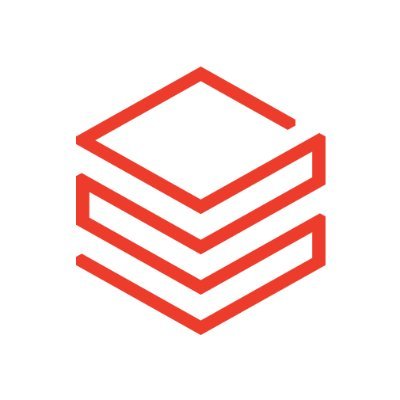Structural racism and social inequalities have led to deep and persistent health inequalities. The Center for Population Health Sciences (PHS) is focused on harnessing data to address these inequalities and improve population health. Toward this end, we have created a world-class data ecosystem that hosts over 100 datasets, supporting 900 users, 600 studies, and 2,000 projects. PHS’ data team is responsible for managing PHS’ data ecosystem, advancing critical research projects and initiatives, developing novel data products and services, and acquiring new datasets that enable population health research.
The Assistant Director (Biostatistician 2) will lead the data science of the cancer research working group. Working in close collaboration with PHS faculty and cancer researchers across Stanford University, they will manage large insurance claims datasets and design, implement, and report studies to ask cancer-related questions of these datasets. This is an excellent opportunity for a data scientist interested in cancer and health outcomes, with access to world class AI/ML faculty, working at the forefront of use of large datasets to address major unanswered questions across a variety of disciplines.
The ideal candidate will have expertise in health care claims data, data management, cloud computing, and excellent verbal and written communication skills. Previous experience working large, complex datasets is desired. The work will take place in a dynamic environment where specifications often change rapidly in response to demand, so the candidate must be able to be flexible.
This position may be either on-campus (at Stanford University in Palo Alto, California) or remote.
Duties include:
- Design study.
- Develop and implement protocol for quality control.
- Create analytic files with detailed documentation.
- Select appropriate statistical tools for addressing a given research question.
- Implement data analysis through statistical programming.
- Present results for investigators using graphs and tables.
- Summarize findings orally and in written form.
- Participate in the preparation of papers for publication.
- Consult with investigators on appropriate statistical approaches to data analyses; assist in study design and proposal development.
- Mentor collaborators in areas of experimental design, quality control, and statistical analysis
- Develop oral and written dissemination of findings for conference presentations and peer-reviewed journal articles.
- Oversee lower-level staff on issues related to quality control and creation of analysis files.
* - Other duties may also be assigned.
DESIRED QUALIFICATIONS:
- PhD in epidemiology, statistics, or similar discipline.
- PhD and at least 2 years’ experience.
EDUCATION & EXPERIENCE (REQUIRED):
Master's degree in biostatistics, statistics or related field and at least 3 years of experience.
KNOWLEDGE, SKILLS AND ABILITIES (REQUIRED):
- Proficient in at least two of R, SAS, SPSS, or STATA.
- Skills in descriptive analysis, modeling of data, and graphic interfaces.
- Outstanding ability to communicate technical information to both technical and non-technical audiences.
- Demonstrated excellence in at least one area of expertise, which may include coordinating studies; statistical methodology such as missing data, survival analysis, statistical genetics, or informatics; statistical computing; database design (e.g., expertise in RedCAP or MySQL); graphical techniques (e.g., expertise in Illustrator).
PHYSICAL REQUIREMENTS*:
- Frequently perform desk based computer tasks, seated work and use light/ fine grasping.
- Occasionally stand, walk, and write by hand, lift, carry, push pull objects that weigh up to 10 pounds.
* - Consistent with its obligations under the law, the University will provide reasonable accommodation to any employee with a disability who requires accommodation to perform the essential functions of his or her job.
WORKING CONDITIONS:
May work extended or non-standard hours based on project or business cycle needs.
WORK STANDARDS:
- Interpersonal Skills: Demonstrates the ability to work well with Stanford colleagues and clients and with external organizations.
- Promote Culture of Safety: Demonstrates commitment to personal responsibility and value for safety; communicates safety concerns; uses and promotes safe behaviors based on training and lessons learned.
- Subject to and expected to comply with all applicable University policies and procedures, including but not limited to the personnel policies and other policies found in the University's Administrative Guide, http://adminguide.stanford.edu.
This role is open to candidates anywhere in the United States. Stanford University has five Regional Pay Structures.
The compensation for this position will be based on the location of the successful candidate. The expected pay range for this position is $87,000 to $125,000 per annum.
Stanford University provides pay ranges representing its good faith estimate of what the university reasonably expects to pay for a position. The pay offered to a selected candidate will be determined based on factors such as (but not limited to) the scope and responsibilities of the position, the qualifications of the selected candidate, departmental budget availability, internal equity, geographic location, and external market pay for comparable jobs.
As an organization that receives federal funding, Stanford University has a COVID-19 vaccination requirement that will apply to all university employees, including those working remotely in the United States and applicable subcontractors. To learn more about COVID policies and guidelines for Stanford University Staff, please visit https://cardinalatwork.stanford.edu/working-stanford/covid-19/interim-policies/covid-19-surveillance-testing-policy.


